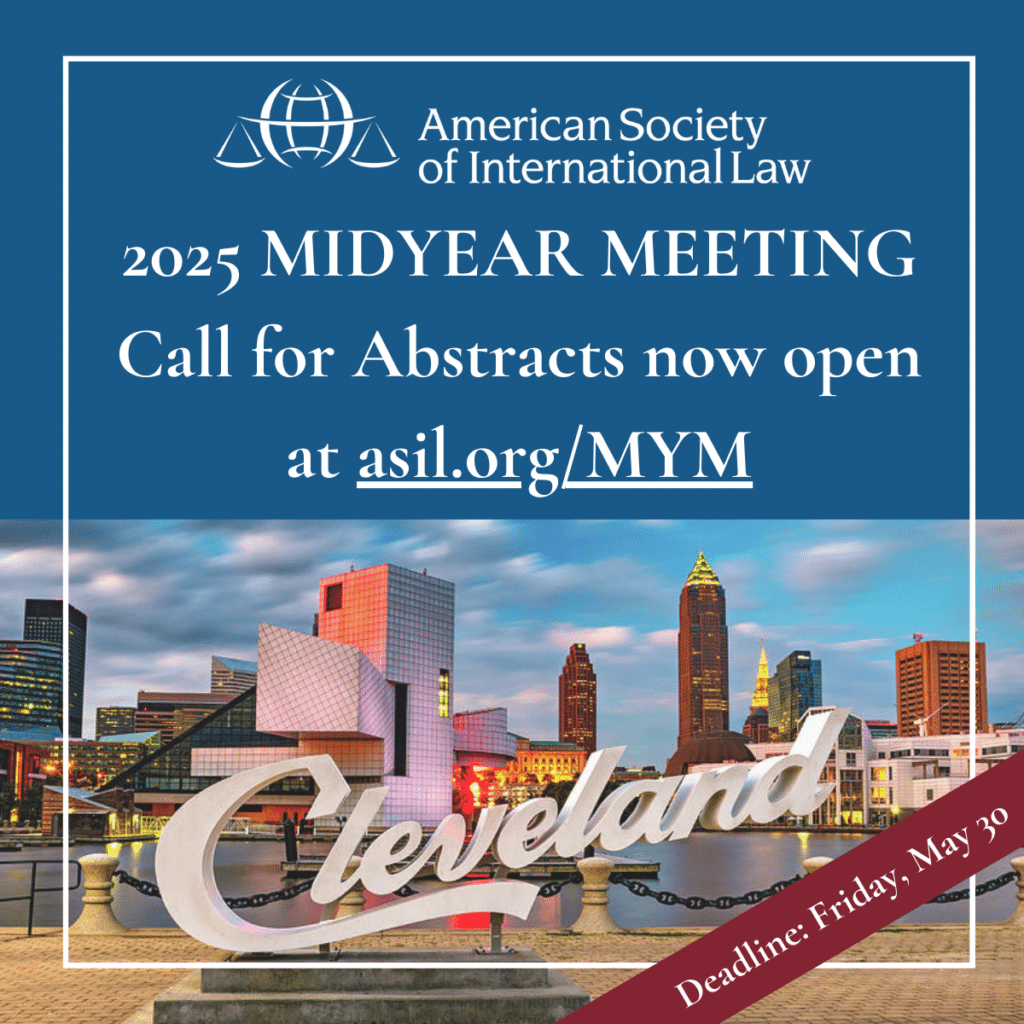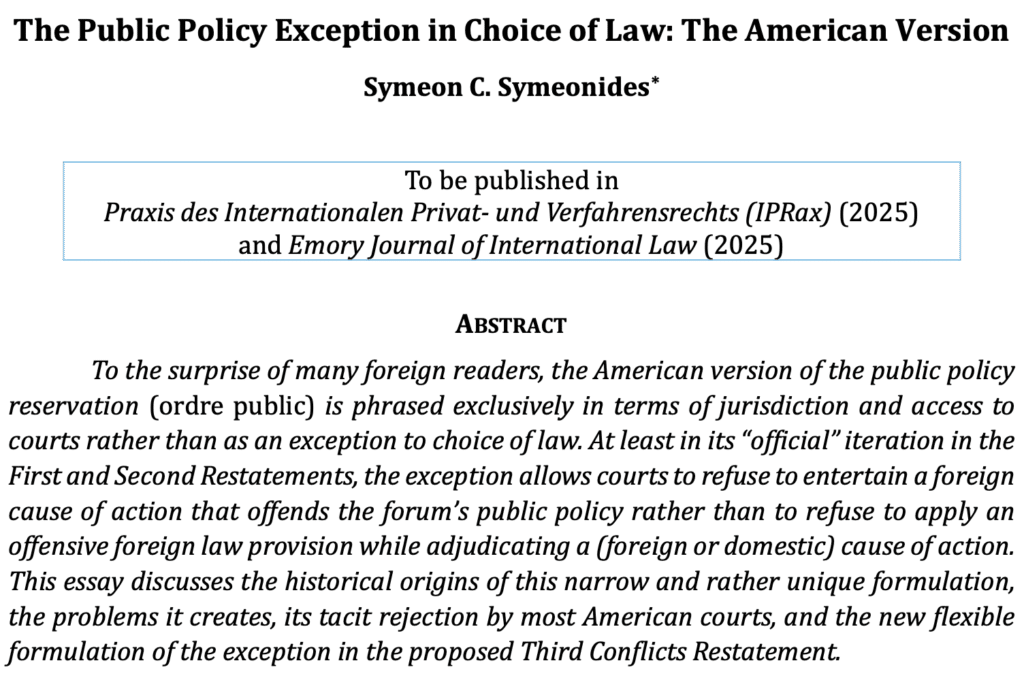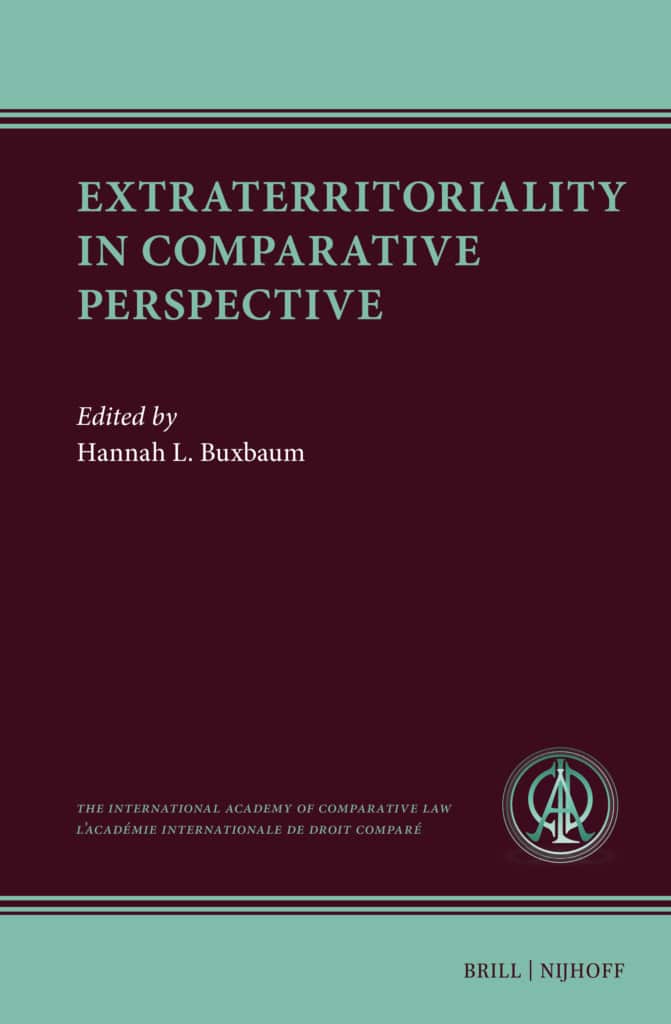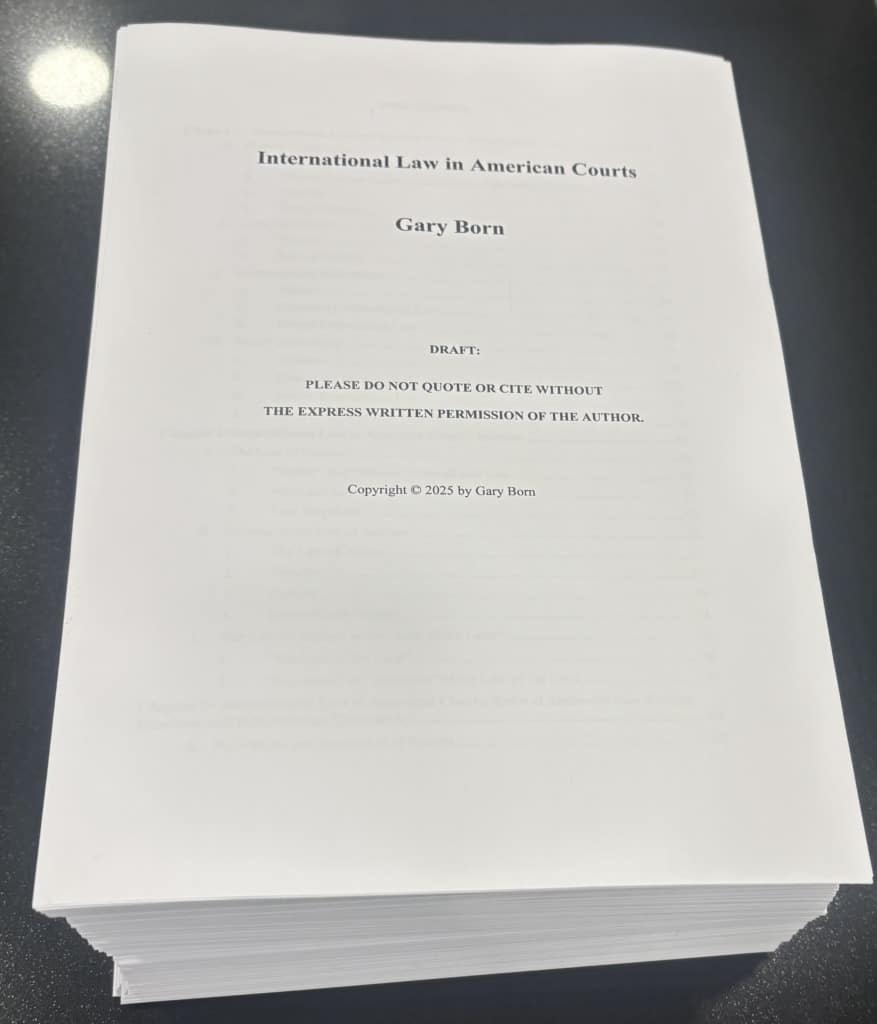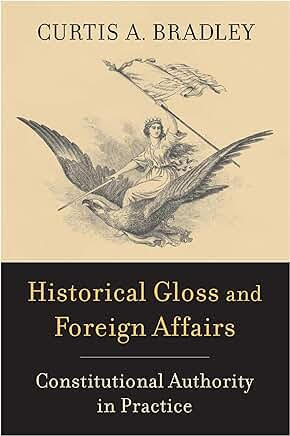Recent Scholarship on Sovereign Immunity from Executive Measures
Immunity protects the assets of foreign sovereigns from the jurisdiction of domestic courts. Customary international law requires such immunity, which is also conferred in the United States by the Foreign Sovereign Immunities Act (FSIA). An important question about sovereign immunity is whether it also protects the assets of foreign sovereigns from executive branch or administrative…
Continue ReadingWhy Canada’s Terrorism Exception Does Not Violate International Law
Like the United States, Canada has an exception in its State Immunity Act (SIA) for state supporters of terrorism. Canada has put Iran and Syria on the list of states against which claims for terrorism may be brought in Canadian courts. Under the SIA, Canadian courts have found Iran liable for shooting down a Ukraine…
Continue ReadingCall for Paper Proposals—ASIL Midyear Meeting
The American Society of International Law is soliciting scholarly paper proposals for the 2025 ASIL Research Forum to be held at ASIL’s Midyear Meeting, September 25-27, at Case Western Reserve University School of Law in Cleveland Ohio. Abstracts can be submitted by clicking here and then clicking on “Call for Paper Proposals.” The deadline is…
Continue ReadingNew Article on the Public Policy Exception to Choice of Law
In every private international law system, the forum state reserves the right to reject the application of a foreign rule that deeply offends the forum’s fundamental sense of justice and fairness. In all systems, this “public policy reservation” (ordre public) operates as an exception to the forum’s choice-of-law rules, not its rules on jurisdiction or…
Continue ReadingExtraterritoriality in Comparative Perspective
Extraterritoriality has been on the outs with the Roberts Court, which has curtailed the reach of U.S. trademark, human rights, securities, and racketeering laws via the presumption against extraterritoriality. But globally, extraterritoriality may be on the rise. Countries have flexed their extraterritorial muscles to address data privacy, human rights, competition law, tax base erosion, and…
Continue ReadingInternational Law in American Courts
In a new book, International Law in American Courts, slated for publication in Summer 2025, I address the status of international law in American courts under the Constitution and the power of those courts directly to apply rules of international law. Readers can find the full manuscript on SSRN here. In this post, I summarize…
Continue ReadingA Roadmap to Service by Email
Federal courts have struggled with the question of when they can authorize service by email on a defendant located in a country that belongs to the Hague Service Convention—as we have explained in many prior posts. Though the interaction between the Convention and Federal Rule of Civil Procedure 4(f) can be tricky, there are clear…
Continue ReadingHistorical Gloss and the Extradition Power
In a recently-published book, “Historical Gloss and Foreign Affairs: Constitutional Authority in Practice,” I document how the foreign affairs powers of Congress and the executive branch have been heavily shaped by historic governmental practices, on issues ranging from the recognition of foreign governments to the use of military force. In this post, I discuss one…
Continue ReadingNew Essay on Anti-Enforcement Injunctions
In a symposium issue honoring Linda Silberman, the NYU Journal of International Law and Politics has just published an essay that Ralf Michaels and I wrote on anti-enforcement injunctions. In the United States, the best-known example of this type of order is the one entered by the Southern District of New York in the infamous…
Continue ReadingFrom Standards to Rules in Private International Law?
Linda Silberman, Clarence D. Ashley Professor of Law Emerita at NYU School of Law and TLB Advisor, has recently posted to SSRN a number of her lectures from her summer 2021 Hague Academy General Course in Private International Law, updated to reflect changes through 2024. The series of lectures, entitled The Counter-Revolution in Private International…
Continue Reading

